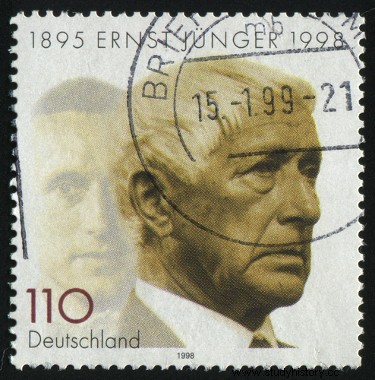
By Me. Cláudio Fernandes
The German writer Ernst Jünger (1895-1998) was also a combatant during World War I , and his experiences were recorded in the work “Tempestades de Aço”. Jünger also denounced the rise of Nazism in works such as “On the Marble Cliffs” and reflected on various aspects of the society that formed in Europe and the rest of the world after the advent of the world wars. We will speak here of one of these reflections, which is recorded in the essay “A mobilization total" , published in 1930.
In the essay “Total mobilization”, Jünger sets out to define a phenomenon that, according to him, is characteristic of the formation of mass society that took place at the turn of the 19th century to the 20th century. This phenomenon could be observed more acutely during the years in which the First World War unfolded. The title of the essay already describes the phenomenon. By total mobilization, Jünger understands the symmetrical process of engagement between the world of work and the world of war. The entire mass that formed in large urban centers at the beginning of the 20th century, around large industries, was mobilized in the war years, that is, it was “called” to the production of weapons, to the flow of products that revolved around the war, to the fatal dynamic that war implied.
Jünger asserted that the time of aristocratic warfare, of practical warfare on battlefields far from the civilian population, with experienced and aristocratic soldiers, was buried with the advent of the war of 1914 The First World War spread carnage, terror, scarcity and all other ills to the entire population. Everyone, especially in Europe, was immersed in the war and served it, in one way or another. For every contingent of soldiers, for every army of warriors there was, according to Jünger, an army of work. Work channeled his energy into the battlefield. Thus, for Jünger:
“Just as every life, at birth, already carries the germ of its death, so the emergence of the great masses contains within itself a democracy of death. The era of the aiming shot, in fact, is behind us. The squad leader who, late at night, gives the order to attack bombs no longer knows any difference between combatants and non-combatants, and the cloud of lethal gas advances like a natural element over everything that is alive. The possibility of such threats, however, does not presuppose a mobilization, either partial or general, but total , which itself extends to the child in the cradle, who is threatened like everyone else, in fact, even more strongly.” (JUNGER, Ernst. Total mobilization . nat. hm., São Paulo, v. 4, no. 1, June 2002. p. 198.)
The spirit of progress and the belief in the technical development of humanity, in the “religion of progress”, were, for Jünger, the engine of total mobilization, the guiding thread for the succession of catastrophes that began with the First World War. The masses that moved the industries of the European nation-states of the 19th century ended up demanding a discharge of their “potential energy”.
* Image credits:Shutterstock and rook76
